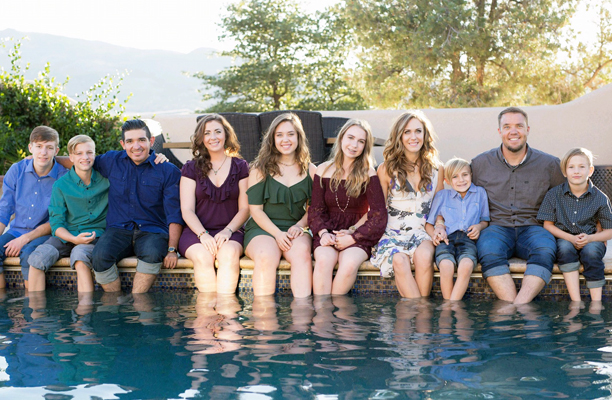
In a span of less than 10 years, Jamie and Josh Procknow fostered more than 20 children. Today, they are the parents of 8, who range in age from 9 to 26, and Jamie is working as a foster parent recruiter.
Jamie talked with us about her approach to parenting and her work finding families for children in care.
You and your husband were in your early 20s when you decided to adopt. What was your motivation?
I had always wanted to adopt. I don’t know where I got the idea, no one I knew had adopted children. It seemed like divine inspiration. Josh had grown up with parents who frequently helped children who were struggling, so welcoming children into our home was a natural extension of his upbringing.
We had been married for a few years and our family business—installing swimming pools—was thriving. We thought: We have so much, and we are so young. We should share what we have—not only our resources, but our home—with children. And in the process, we hoped we could help their birth families move forward and heal too.
Can you talk about your approach to forming relationships with children’s birth families?
We’ve tried to keep every child we fostered or adopted connected with their birth family—to the extent that the interactions were safe and age-appropriate. That has looked different for every child. It might be having a family over for a holiday dinner, or having a picnic in a park. Sometimes it is simply keeping in touch on social media or through email. In the process of keeping children connected, we’ve formed lasting relationships with their family members. We’ve stayed in contact with nearly every child we fostered—and with their birth families.
You fostered more than 20 children—including babies and teen mothers. How did you feel when they were reunified with birth family?
Our goal was always to see a child reunified with their parents. And we were part of those stories. But of course, that didn’t always happen. When a child we’d grown to love left our house, we grieved. How could we not? What got me through it was believing that children carry the love that we pour into them long after they left our home. That love stays with them all their days—their heart never loses track of it. What they were taking away was more important than what we were losing.
You’ve been working part-time recruiting foster parents for a few years now. What are the most common questions you are asked?
People are often worried about how fostering or adopting from foster care will affect their birth children. They fear that their birth children are sacrificing something. I tell them that my experience has been the opposite. I’ve seen birth children—ours and other people’s—become more caring, giving people who go on to help other children like their sisters and brothers.
I’ve also had a lot of people tell me that you can’t make much of a difference in older kids’ lives. That’s just crazy to me! Our oldest daughter, who is 22 now, came to us as a teen who didn’t want anything to do with children. Today, she is working with teens in foster care and getting licensed to become a foster parent.
Final thoughts?
I talk with a lot of people who want to help children but are afraid and maybe overwhelmed by the statistics. But every person has a role to play—whether it is being a foster parent, providing respite care, volunteering with Big Brothers/Big Sisters, or being on the support team for a family who is fostering. It’s just a matter of finding the right path.
Think foster parenting might be right for you? Learn more about the types of fostering and what it takes to be a successful parent.